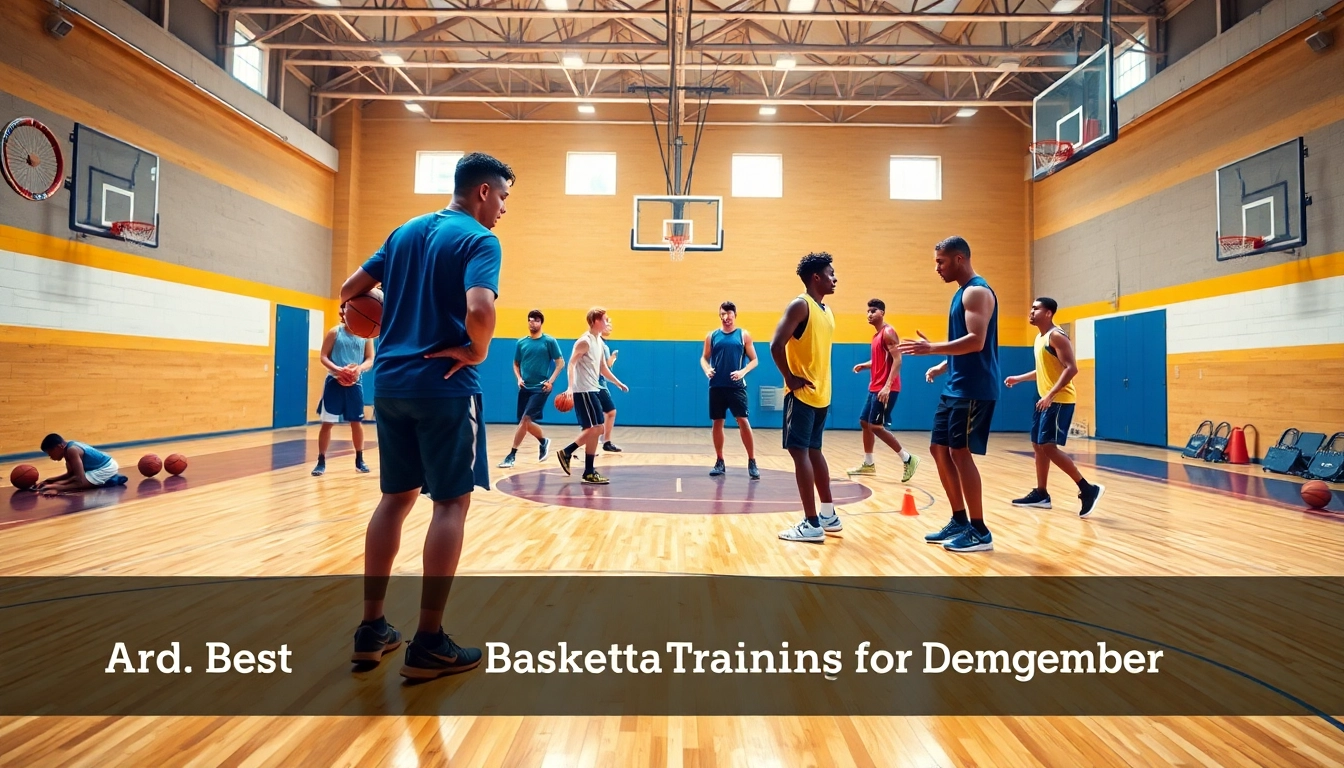Basketball has long been a beloved sport around the world, attracting millions who dream of dunking like their favorite stars and hitting game-winning shots. For aspiring athletes, finding the best basketball training programs is essential to developing their skills, enhancing performance, and achieving personal goals. This article delves into the intricacies of basketball training programs, what differentiates quality options, and how to choose the best fit for individual needs.
Understanding the Best Basketball Training Programs
What Constitutes a Quality Basketball Training Program?
A robust basketball training program focuses on developing various skills and attributes necessary for success on the court. Key components of a quality program include:
- Skill Development: Programs should enhance fundamental skills (shooting, dribbling, passing) while also focusing on advanced techniques tailored to the players’ levels.
- Physical Conditioning: A well-rounded training regimen incorporates strength, speed, and endurance, ensuring athletes are physically prepared for the demands of basketball.
- Mental Toughness: Overcoming challenges and performing under pressure is crucial in sports. Quality programs foster mental resilience through tailored psychological training.
- Injury Prevention: Injury management and prevention training are pivotal, particularly for younger athletes. Quality programs address proper warm-ups, cool-downs, and recovery sessions.
- Personalization: Effective programs cater to the individual needs of each athlete, assessing skill levels, goals, and preferred learning styles.
Key Features of Effective Basketball Training
Successful basketball training programs boast several defining characteristics, including:
- Expert Coaching: Quality trainers with experience both playing and coaching basketball can provide essential insights and feedback.
- Structured Curriculum: A clear and organized training plan keeps athletes focused and allows them to track progress.
- Feedback Mechanisms: Regular assessments and feedback help athletes understand their progress and areas for improvement.
- Supportive Environment: Training should be conducted in an encouraging atmosphere, fostering teamwork and camaraderie among participants.
- Modern Technology: Using video analysis and performance metrics can offer deeper insights into individual performance and areas needing enhancement.
Benefits of Structured Training for All Levels
Regardless of experience level, structured basketball training provides profound benefits:
- Skill Mastery: A systematic approach allows athletes to develop, refine, and master skills progressively.
- Increased Confidence: Regular successful training experiences build self-confidence, essential for performing during competitions.
- Discipline and Focus: Participating in structured programs instills habits of discipline, punctuality, and commitment that extend beyond the court.
- Team Dynamics: Training programs often promote collaboration, helping players learn to work as a cohesive unit.
- Enhanced Opportunities: Participating in reputable training programs may open doors to college scholarships and amateur drafts.
Comparative Analysis of Leading Basketball Training Programs
Online vs. In-Person Training Programs
The landscape of basketball training has evolved, offering numerous options for athletes. Each training style presents unique advantages and limitations:
- Online Training Programs: Embracing technology, online training offers flexibility. Athletes can learn at their pace, access diverse resources, and benefit from instructional videos and virtual coaching. However, lack of personalized feedback and real-time adjustments can be a drawback.
- In-Person Training Programs: These programs provide immediate feedback and coaching in real-time. Athletes can benefit from hands-on training, drills, and competitive scenarios in a controlled environment. However, they are often more expensive and can have limitations based on location.
Top-rated Training Programs in the USA
Looking for the best basketball training programs across the USA involves evaluating numerous options. Below are some notable training camps and organizations:
- Evolution Basketball Training: Based in Virginia and Maryland, this program focuses on year-round training through clinics and camps, cultivating over 500 college athletes since its inception.
- Pro-Fit Basketball Training: Specializing in private and small group coaching for all skill levels, Pro-Fit combines personalized training with a wealth of experience.
- Pure Sweat Basketball: Run by NBA trainer Drew Hanlen, this program offers innovative training technology and expert coaching for players seeking competitive advantages.
- IMG Academy: Known for its extensive range of sports training, IMG offers customized basketball coaching designed for youth and teen athletes.
Insight into Specialized Programs for Skill Improvement
Specialized training programs cater to specific skill improvement. Here are notable examples:
- Shooting Programs: Programs like Jordan Lawley’s offer specialized shooting drills tailored to enhance accuracy and shooting form.
- Ball Handling Courses: Focused training routines that address ball control and manipulation, crucial for offensive plays.
- Strength and Conditioning: Strength-oriented programs designed to build athletes’ physical resilience, making them less susceptible to injuries.
Selecting the Right Basketball Training Program for You
Assessing Your Current Skill Level
One of the first steps in selecting a training program is understanding your current skill level. Self-assessment can involve recording performance metrics, receiving feedback from coaches, or evaluating personal skills against established standards. This step ensures that you choose a program that challenges you appropriately without overwhelming you.
Determining Your Goals and Preferences
Articulating your goals—whether they are improving specific skills, enhancing conditioning, or preparing for competitions—will shape your training journey. Additionally, consider logistical factors such as location, time commitment, and budget when assessing different programs.
How to Choose Programs Based on Coaching Styles
The coaching style of your training program can significantly impact your learning experience. Some athletes thrive under a more authoritative coaching style, while others benefit from a more collaborative, supportive environment. Researching coaches, examining their methodologies, and even attending trial sessions can help you identify the best fit.
Maximizing Your Training Experience
Setting Realistic Goals and Progress Tracking
Establishing measurable goals is vital for gauging progress. Whether it’s enhancing your shooting percentage, improving agility, or developing playmaking skills, identifying specific objectives allows you to track achievements effectively. Regular evaluations against these goals can provide a sense of achievement and motivate continued practice.
Incorporating Feedback from Coaches
Coaches’ insights are invaluable. Actively seek feedback on performance, allowing coaches to guide your training based on observed strengths and weaknesses. Constructive criticism will help pinpoint areas needing attention and optimize your training strategy.
Importance of Nutrition and Fitness in Training
Fitness and nutrition play critical roles in an athlete’s training and performance. A properly balanced diet fuels physical exertion, speeds recovery, and supports overall health. Consulting with nutritionists and adhering to tailored fitness regimens complementing basketball training can further enhance performance.
Success Stories: Athletes Who Transformed Through Training
Profiles of Successful Players
Countless basketball players, both amateur and professional, boast success stories rooted in effective training. Notable athletes often credit mentors or rigorous training programs for their achievements. For instance, NBA stars like LeBron James have engaged in specialized training from a young age, enabling their fluid playstyle and remarkable endurance.
Impact of Quality Training on Basketball Careers
Quality training significantly influences athletes’ careers, from grassroots to professionalism. Consistent practice and skill refinement lead players to secure college scholarships, advance into professional leagues, and, in some cases, achieve international acclaim.
Real-Life Testimonials from Trainees
Athlete testimonials often illustrate the tangible benefits derived from quality training. Many participants share how a specific program pivoted their focus or boosted their confidence, highlighting the transformative nature of structured training. Sharing success stories not only inspires others but also serves as a powerful motivator for continuous hard work.



